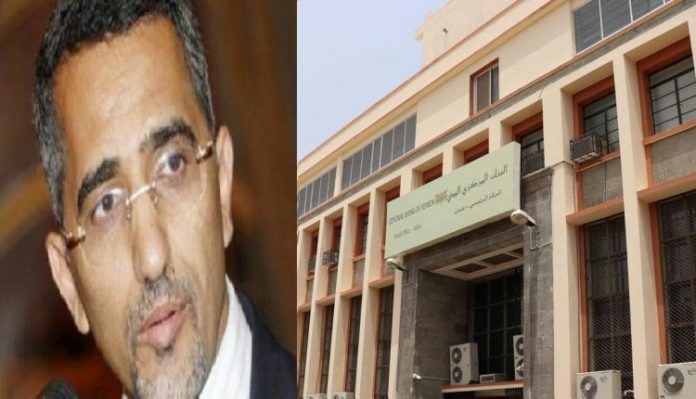Al-Thawra Net
Prosecution and security services in the capital Sana’a have carried out a campaign to close 150 illegal exchange centers, in a series of measures to reduce currency speculation that is accelerating the exchange rate of the dollar.
“The prosecutor and competent security services have closed down more than 150 unlicensed ATMs that are in contravention of the central bank’s instructions in Sanaa,” a national Salvation Government official said in a statement issued on Friday.
“This action is part of a series of measures taken by the national Salvation government and the Higher Economic Committee to maintain the exchange rate and reduce foreign currency speculation,” the statement read.
The statement attributed the reasons for the appreciation of the dollar’s exchange rate over the past weeks to what he termed “the chaos in the bank of Aden, its failure to do its job and its inability to control the financial situation and reduce the deterioration”.
“The statements and media fanfare produced by the governor of the Bank of Aden has become lackluster, and the irony is that he has faked the exchange rate disorder for more than a month without stirring a finger,” the statement added.
The Bank of Aden is controlled by the Saudi-backed exiled Hadi government, and has claimed the title of Central Bank since the Saudi invasion began in 2015. However, the real Central Bank of Yemen in Sana’a has also continued to operate under the auspices of the National Salvation Government.
“The Bank of Aden is fully responsible for the exchange rate turmoil, its devastating effects on national capital and the rise in commodity prices,” the official said.
The official further accused the bank of Aden of “dredging the national currency”.
“In an unprecedented move in the history of banks, the bank of Aden has drawn national currency from cash market by purchasing millions of dollars and Saudi riyals from cashiers and some banks, instead of addressing the deterioration,” he said.
“The Bank of Aden is still pumping the printed currency to the market in order to buy dollars and foreign exchange despite warnings from economists and international organizations,” he added.
The official described the actions of the bank of Aden as “a tool of the enemy in its war on the Yemeni people”.
“What the bank of Aden claims to cover what it calls the documentary credits for commodity financing is only a lie. This is trading of people’s livelihoods and interests of the Yemeni people,” the official said.
“The exchange rate turmoil has exacerbated the conflicts of mercenaries and the oil mafia’s descent into buying currency from the Aden market after the bank of Aden announced its inability to finance the purchase of oil derivatives and raised the exchange rate from 440 to 500,” he added.
The official asked the question: “Where does the oil money from Hadhramaut and Shabwah go, and where are the returns from the foreign exchange that cover the country’s needs of currency in order to cover the consumption in the occupied areas?”
The official also expressed its surprise regarding the moral chaos of mercenaries, their silence on preventing the illegal export of liquefied gas and oil, and their total submission to the enemy agenda of destroying the functions of the Central Bank.
“The National Salvation Government will continue to exercise the power that is available to it, in the context of its ability to maintain the exchange rate and prevent currency speculation,” the official concluded.


















